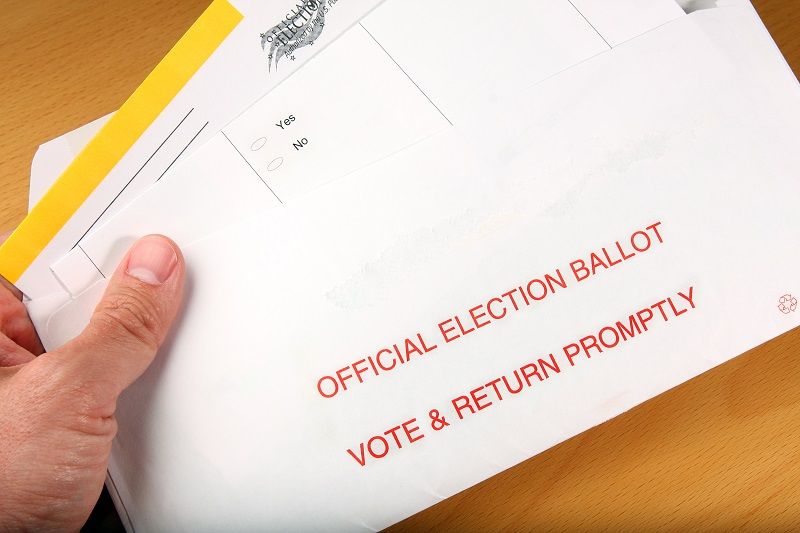PORTLAND, Ore- The eight members of Cascade Policy Institute’s Board of Directors have released the following statement on Oregon’s Measure 80 Ballot Initiative.
“It is time to legalize marijuana in Oregon. The long-standing prohibition on possession and use of marijuana has never served the public interest and has generated a significant amount of collateral damage. Prohibition increases the retail price of the product, which can fuel property and other real crimes as some users turn to theft to pay for it. Prohibition drives the market into the underground economy where disputes are settled with violence, creates opportunities for corruption among law enforcement personnel, and makes it difficult to provide assistance to those with addiction problems. Prohibition also turns otherwise law-abiding citizens into criminals and reduces respect for our justice system in general.”Given that other consumer products such as lottery games, motor vehicles, tobacco, and alcohol are all legal despite health and safety concerns to both users and non-users, the continued prohibition on marijuana stands out as a costly anachronism in state policy.”Unfortunately, Measure 80 is much more than a legalization measure. The proposal includes several other elements that are unnecessary or undesirable. As a result, pro-freedom voters could decide either way on this particular measure.
“On the positive side, under Measure 80, hemp production for fiber, protein, and oil is allowed without regulation, license, or fee. This brings a beneficial agricultural commodity onto the commercial market. Cultivation and possession of cannabis for personal, noncommercial use is also allowed and does not require a license or registration. This reflects the proper role of government in marijuana use, which is to allow responsible adults to make their own decisions without passing judgment about whether such use is good or bad, and without creation of new agencies or fee structures.
“Cannabis cultivation for commercial use is allowed, but only through a permit system run by a new bureaucracy, the Oregon Cannabis Commission (OCC). This is the beginning of ‘mission creep’ for Measure 80. The OCC emulates Oregon’s liquor monopoly by creating a state-run retailing program, except it is worse than the OLCC because five of the seven people who would serve on the OCC are directly elected by growers and processors of cannabis licensed by the OCC. The state monopoly would be further strengthened by the fact that import or export of cannabis from Oregon remains illegal.
“OCC ‘contractors’ (presumably retailers) would automatically receive 15% of gross sales, a metric not explained or justified anywhere in Measure 80 itself.
“Perhaps the most troubling aspect of the Measure 80 regulatory scheme is that it attempts to ‘buy off’ opposition by liberally spreading marijuana profits around. This is immediately obvious by the formal title of the measure itself: the Oregon Cannabis Tax Act. It is first and foremost a new tax revenue program, not a civil liberties program. The state general fund would receive 90 percent of net revenues, which proponents have used to market this as a ‘pro-schools’ measure. Only seven percent of net revenues would go to drug abuse treatment programs, and the remaining three percent of funds would support two new agricultural commodity commissions and a drug education campaign in schools.
“A major problem with this new tax program is that it would worsen what is already a serious ‘moral hazard’ problem for state legislators, by handing over a lucrative new revenue stream from the sale of cannabis. This not only encourages them to spend more, it creates a vested interest in the growing and selling (for profit) of cannabis through state outlets.
“Legislators already face this problem with gambling, tobacco, distilled spirits, and gasoline. In every case, the track record over time has been to market these products more aggressively and/or raise excise tax rates in order to feed legislative spending habits.
“In fact, legislators are not content to simply spend the money received each year from these products; they routinely mortgage the future by selling bonds to Wall Street, to be paid back with earnings from the sale of the taxed products over a 20-year period. Once the Oregon Treasury is legally obligated to pay off bondholders, the state clearly becomes dependent on ever-greater levels of consumption.
“If marijuana is legalized for the primary purpose of raising tax money for the state, bond debt will grow, and the state will become an overt promoter of marijuana sales through the OCC.
“In legislative parlance, Measure 80 is a ‘Christmas Tree’ bill. It features a fundamentally good policy as the tree – ending the disastrous prohibition on cannabis use – but then weighs it down with extraneous features designed to please many different constituencies. The thinking behind such a strategy is that since the bill contains something for (almost) everyone, a plurality of voters will embrace it, however reluctantly.
“We cannot cross that threshold. We neither support nor oppose Measure 80. We urge voters to read the measure carefully and decide for themselves if this is a ‘package deal’ they are comfortable with.”











